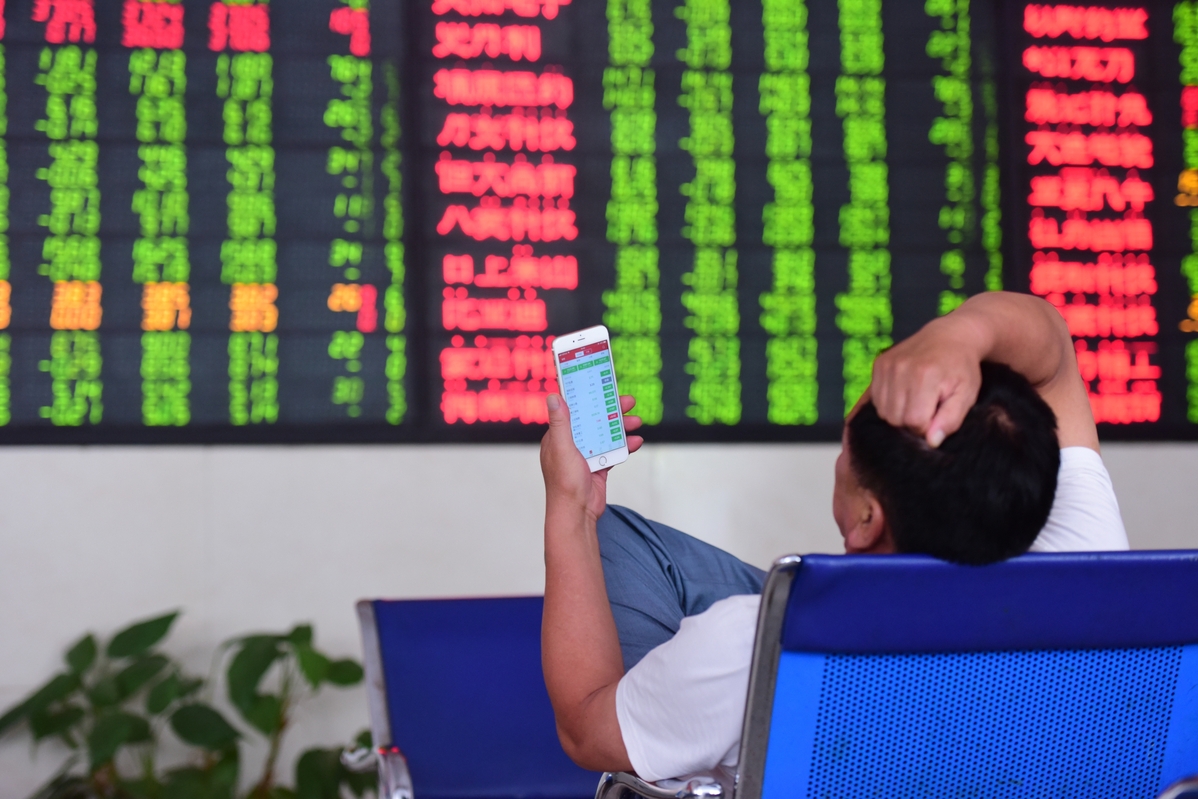World swears by A shares on resilience


Despite mixed fortunes on bourses in 2021, foreign investors enthusiastic
The ups and downs in the A-share market this year have not dampened the enthusiasm of leading international investors.
They have vowed to allocate more capital and look for more structural opportunities in the new year.
For instance, UBS Global Wealth Management has said overseas investors' interest in the A-share market has been increasing. It attributed the phenomenon to China's strong supply chain resilience.
It is a factor that helped China to stave off a crisis during COVID-19, said Hu Yifan, the firm's regional chief investment officer and head of macroeconomics for Asia.
Stocks of consumption-related companies in the A-share market have been especially lucrative for overseas investors, said Hu.
As China's per capita GDP is projected to double and top $20,000 in 2035, the country will be home to more than 400 million middle-income earners. This suggests the huge potential in the Chinese consumption market and stoked overseas investor interest in A shares of related companies, she said.
China's series of plans for the development of the manufacturing and high-end chip-making sectors have also helped buoy investor sentiment, she said.
The plans were announced during the Sixth Plenary Session of the 19th Communist Party of China Central Committee in November.
The benchmark Shanghai Composite Index gained 0.39 percent to close at 3630.11 points on Tuesday, while the technology-heavy ChiNext on the Shenzhen bourse jumped 1.06 percent to close at 3328.56 points.
As of Dec 23, more than 417.5 billion yuan ($65.5 billion) of overseas capital has flown into the A-share market via the stock connect programs, according to Wind Info, a market data provider. The amount of foreign investment is expected to continue to rise to a record high in the new year, experts said.
Although the A-share market fluctuated quite a bit this year, market mavens have a positive outlook for 2022 in anticipation of possible easing of monetary and fiscal policies for fresh development, said Laura Wang, chief China equity strategist at Morgan Stanley.
At the beginning of this year, Morgan Stanley suggested that investors may want to allocate as much capital as possible to the A-share market from their China investment portfolio.
That practice can be carried on in 2022 while looking for more thematic and structural opportunities in the A-share market, said Wang.
Stocks of companies specializing in information security, network security and the localization of semiconductor technologies will promise much room for high returns on investment. Raw materials that have controllable capacity and predictable profitability may also churn out investment opportunities, with aluminum and lithium part of the best targets, she said.
Victoria Mio, director for Asian equities at Fidelity International, said the recent turbulence in the A-share market resulted from the tighter regulations imposed on the property and online education sectors although it has subsided over the past few months.
The A-share market's price-to-earnings ratio is below 20-not only much lower than the reading in the United States and the global average but lower than the historic market peak.
In this sense, investing in the A-share market is very likely to generate positive results in 2022, she said.
Global asset management firm Robeco will increase its investment in stocks of the industrial sector in the A-share market in 2022, with focus on new energy and automation companies, said Lu Jie, the firm's head of investments in China.
As China has a goal of reaching carbon neutrality by 2060, investors can also look for opportunities in renewable and "new infrastructure" sectors as the country aims to embrace green development, said Lu.
The rapid development that China has seen over the past few decades has not only made the local markets the darlings of global investors, but helped create an independent category within the investment portfolios under certain circumstances, said Philip Li, investment director at Wellington Management, a global fund manager.
Wellington Management said it believes tighter regulations on the Chinese internet industry have somehow led to a price slump in shares of certain listed companies. But the negative risks are fully reflected in the current share prices, which makes the Chinese internet industry a very attractive investment target.
"China has led the global digital economy all along. The business model of the Chinese internet industry remains intact," said Li.




































